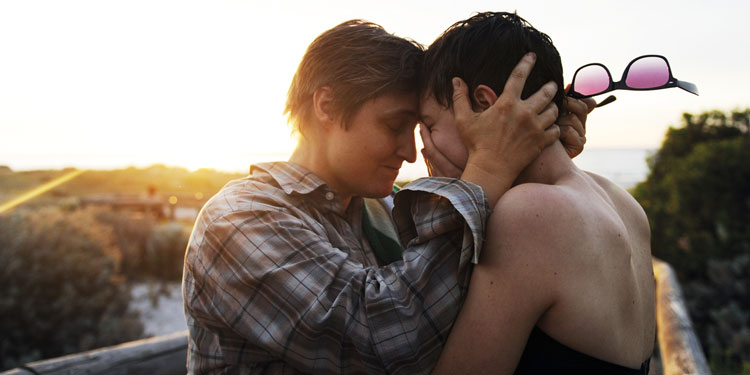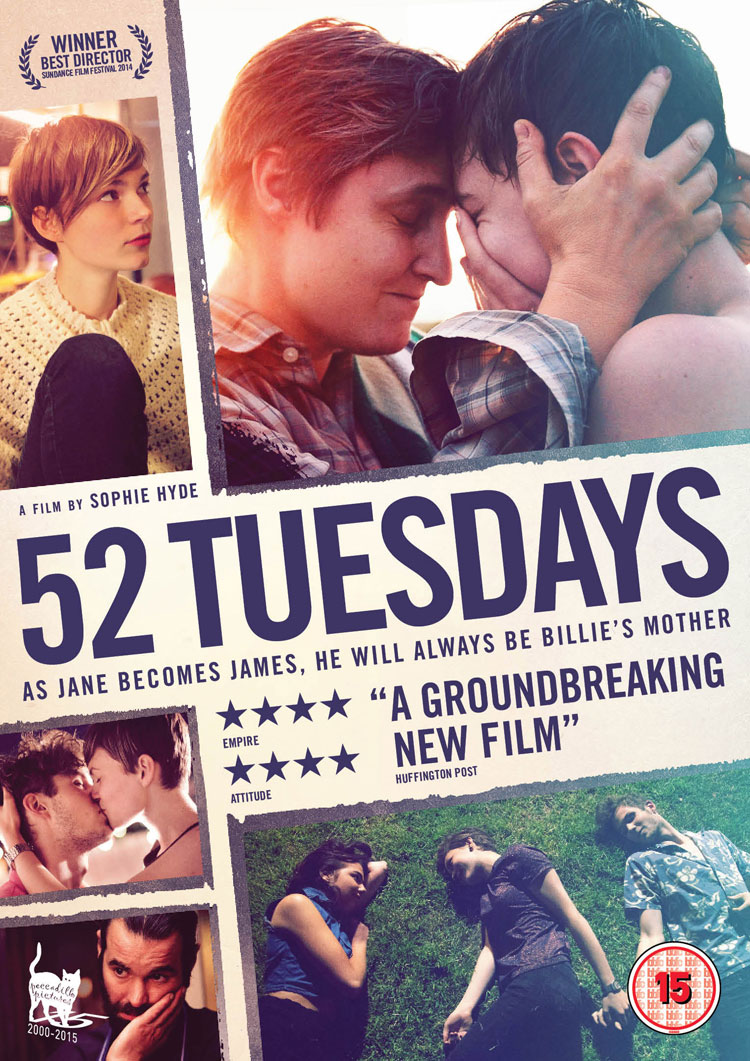
Director: Sophie Hyde
Running Time: 114 mins
Certificate: 15
Release Date: September 28th 2015 (UK)

Aussie movie 52 Tuesdays premiered at Sundance (where it won a Best Director prize) and has garnered as fair amount of interest and praised, both due to its subject and the way it was made. The film was shot one day a week over the space of a year, with the script and story evolving over that time. It’s not the first time it’s been done, and to be honest it’s a technique that has rarely created anything that feels like it was better than if they’d just stuck with a pre-determined script.
52 Tuesdays is about teenager Billie and her mother Jane. Billie’s life changes when Janes informs her daughter that she wants her to go and live with her father, to give Jane space while she starts transitioning to life as a man. Initially Billie isn’t sure how to react, especially as Jane – now James – seems uncertain whether she wants her daughter around, and the teen doesn’t know quite how to react to that.
The film then literally follows a year’s worth of Tuesdays – which is the day Billie and James are supposed to share time together – charting James journey as he slowly starts to find more confidence as a man. He also needs to find a new relationship with his daughter. Billie meanwhile is uncertain about whether this is an evolution of their relationship or whether she is building a new one with a new person.
The teen also makes friends with a boy and a girl, and begins to experiment with them, all three pushing their boundaries. However, while it’s initially the friends challenging Billie, eventually it may be her who taking things too far. There’s also the possibility that the way she is expressing her burgeoning sexuality is a reaction to James’ journey, causing Billie to lose sight of where boundaries perhaps ought to be.
52 Tuesdays is an intriguing and always interesting film, even if the way it was filmed sometimes makes it feel as if it’s meandering and losing track of exactly what’s it’s supposed to be doing. However, it manages to create a real sense of earnestness, so that even at the points where it doesn’t seem sure what it’s doing, it genuinely cares about its characters and feels great empathy for them.
It’s also nice that while it’s keen to show James’ journey, it’s just as interested in how James’ transition affects his daughter. Neither are shown as saints, with James sometimes seeming rather selfish (in a very human way), while Billie’s reaction is a mix of confusion, liberation and a teenage desire to see how far they can push things. It is people muddling through, but keen to show that underneath the problems and negative actions they are basically good people trying to live their lives the best way they can.
It’s an interesting way to handle things, as while the movie never questions whether James should have transitioned or not, it does suggest there may be negatives impacts, and not purely due to external societal disapproval. There are even moments where the movie could have been seen to verge towards transphobia and homophobia, if it weren’t as grounded and human as it ensures its characters are, with all the foibles and contradictions that entails.
While all that sounds good, 52 Tuesdays never escapes from feeling loose and as if it hasn’t dug into its subject as deep as it might have. It brings up all sorts of ideas and possibilities, but then drops them or doesn’t quite work out what to do with them. It’s partly a result of the film’s experimental nature, and the fact that with a film that continuously evolves over a year there’s a good chance you’re going to slightly lose track of what you started with.
That said, it’s never less than interesting and it’s a rare movie that deals with transitioning in such a grounded way. It also has merit away from directly dealing with James’ issues, looking in a somewhat edgy way at modern teen sexuality and its possible repercussions if it’s taken too far.
Overall Verdict: Perhaps my real issue is that 52 Tuesdays is almost brilliant and I therefore couldn’t help but be frustrated that it only fulfils 90% of its potential. That still means it’s far better than most movies featuring transsexual characters – it’s just that with a tiny bit more strength and direction it could have been transcendent.
Reviewer: Tim Isaac





Leave a Reply (if comment does not appear immediately, it may have been held for moderation)